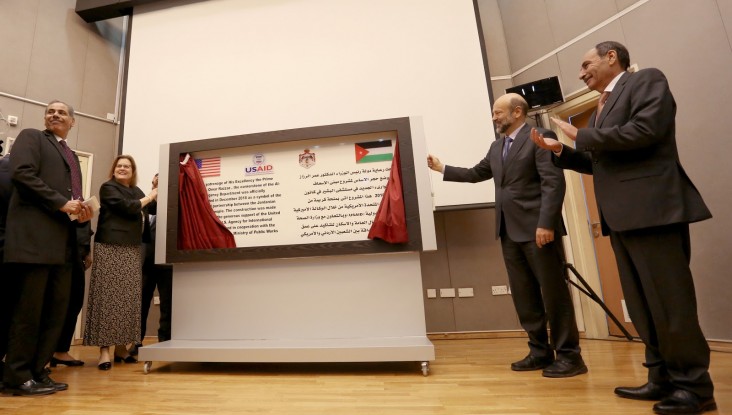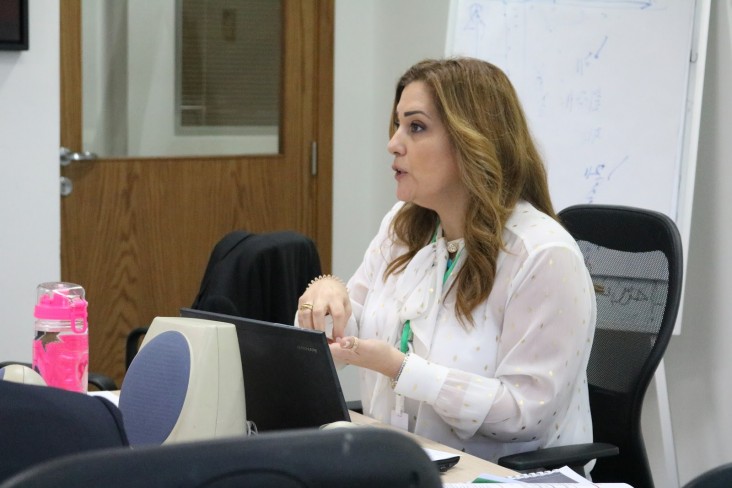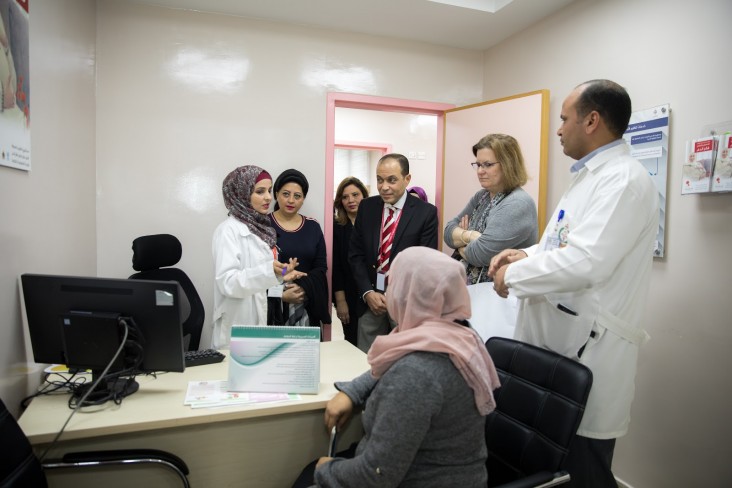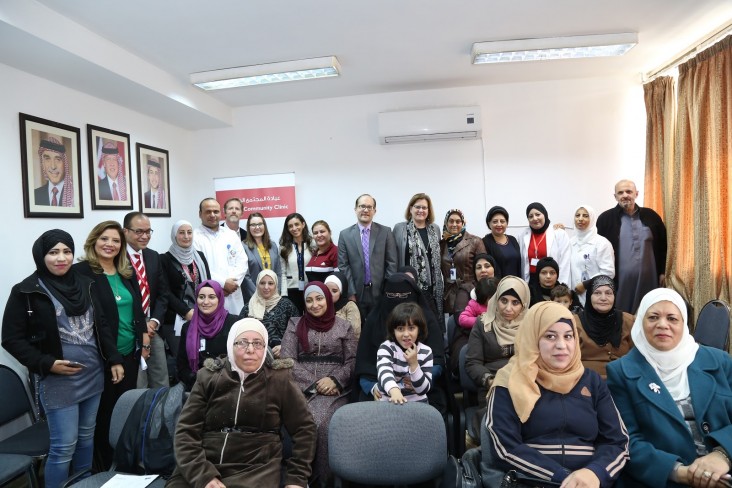Speeches Shim
Posted by Kerry Pelzman.
Times in Transition
U.S. health investments in the Kingdom of Jordan are helping Jordan make the critical transition from donor recipient to development partner. But this transition isn’t always linear. While the health of Jordan’s population has improved significantly over the past few decades, witnessed by a 54% decline in maternal death and a 43% decrease in infant mortality since 1997, the effects of recent geopolitical events—most notably the Syrian crisis—and internal economic challenges have threatened these gains and the ability of the Government of Jordan to provide quality healthcare to all within its borders. It was within the context of this critical development challenge that I was invited to observe activities and to participate in events that represent how USAID programs have evolved to help Jordan address this challenge head on.
Improving Infrastructure

Amman’s Al-Bashir Hospital is a busy place. As Jordan’s largest public hospital, it is a microcosm for some of the same challenges that face the country, such as under-resourced facilities, difficulties in retaining health care workers, and lack of medical equipment. By law, Al-Bashir Hospital cannot turn away any patient seeking care, regardless of the patient’s ability to pay. As a result, the Emergency Department at Al-Bashir Hospital receives 1,500 patients per day (more than 50,000 per month), the majority of whom are poor and vulnerable Jordanians, recent migrants, and refugees from conflict zones across the Middle East.
I was honored to take part in a high-level event recognizing U.S. and Jordanian cooperation to construct a new, state-of-the-art emergency department and trauma center at Al-Bashir Hospital complex. This new facility, staffed by Ministry of Health medical professionals, will meet international architectural standards; improve safety, patient circulation, and infection control; and improve the facility’s overall ability to respond to the rapid number of emergency cases, including obstetric and pediatric emergencies.
Building Sustainable Institutions

USAID engages with many local institutions to get our work done, such as one of our vital Jordanian partners, the Health Care Accreditation Council (HCAC). HCAC serves a critical role in establishing quality assurance and accreditation across Jordan’s health facilities. With USAID support, HCAC was initially established in 2007. This non-governmental organization (NGO) has since evolved into a fully self-sustaining organization known to be the only internationally certified accreditation institution in the region.
I was impressed to learn about the thoughtful establishment of governing bylaws and policies during the formative years of HCAC that help ensure the future success of this institution, beyond its current dynamic leadership.HCAC is the organization solely responsible for accrediting Jordan’s public, private and university health facilities and their partnership with this full range of stakeholders has generated strong momentum in pushing for improvements to quality throughout Jordan’s health system.
The lessons learned from this evolution are immensely important to share globally as USAID continues its efforts to support the development and growth of highly capable local institutions in the broader context of their country’s journey toward self-reliance. When I think of what the journey to self-reliance means for the health sector, HCAC’s ascendance to a national and regional stage is exactly the kind of case study that warrants sharing with other countries.
Ensuring the Availability of Data

Jordan and the U.S. have been working together to ensure the availability of data for making sound policy and budgetary decisions in the health sector. For instance, I saw first-hand a newly-completed surveillance system that captures patient-level data to determine the causes of maternal death in Jordan. The Jordanian Maternal Mortality Surveillance and Response system provides key decision-makers in the public and private health sectors with timely information about the causes of maternal deaths, enabling them to make targeted improvements to directly address preventable causes of death.
I also met a dynamic group of professionals working with government planners to provide real-time information about health facilities throughout the country. The long-standing Syrian refugee crisis and Jordan’s population growth place enormous pressures on the health system and threaten financial sustainability. USAID has invested in several tools, namely the Health Resource Allocation Tool and the Performance Management Information System, which will improve the spending efficiency of public health resources and strengthen health sector governance to more effectively coordinate, plan, manage, and monitor the health system.
Jordan’s lessons of sustainability will prove helpful with countries that are making the transition from lower to middle income economies. Building technical capacity alongside country-owned systems (information, procurement, or otherwise) as USAID has done in Jordan is core to achieving self-reliance. I am eager to see how the lessons we have learned there can be applied in countries all around the world.
ABOUT THE AUTHOR
Kerry Pelzman is USAID’s Deputy Assistant Administrator for the Bureau for Global Health.


Comment
Make a general inquiry or suggest an improvement.